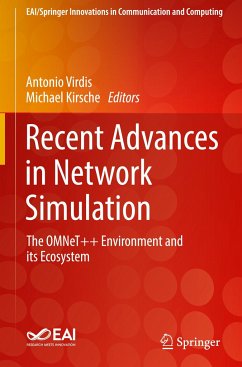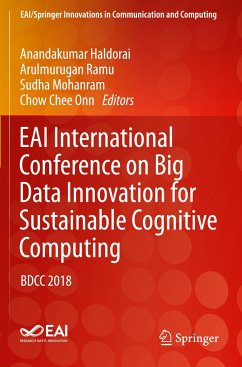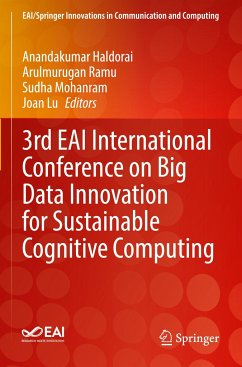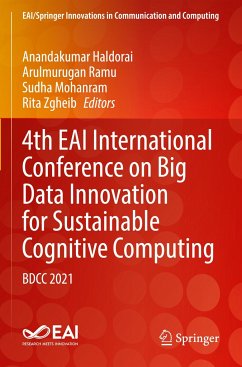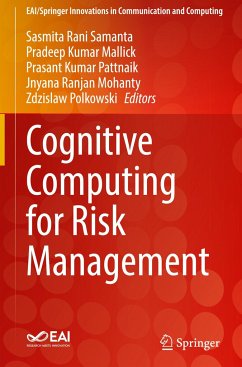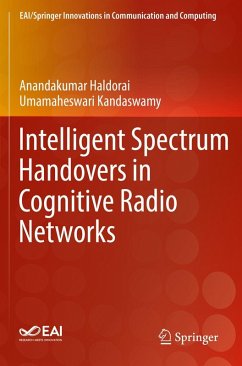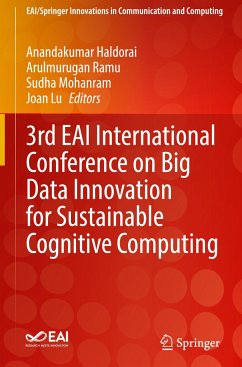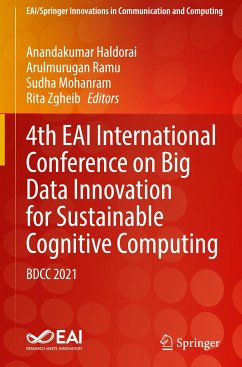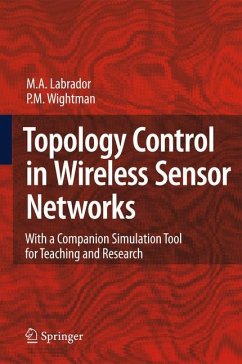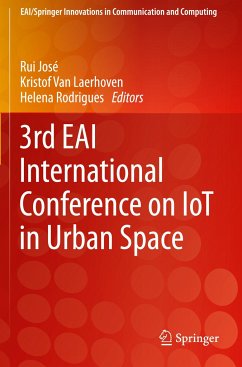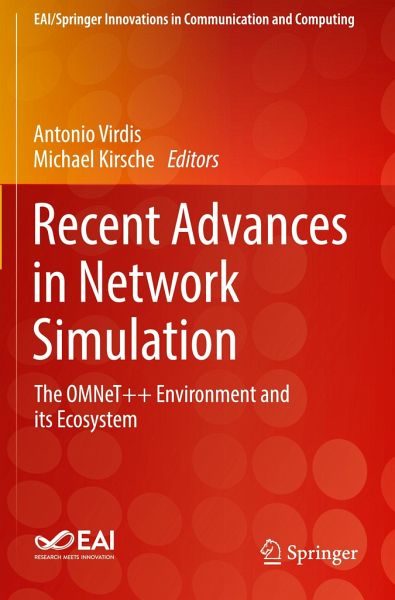
Recent Advances in Network Simulation
The OMNeT++ Environment and its Ecosystem
Herausgegeben: Virdis, Antonio; Kirsche, Michael
Versandkostenfrei!
Versandfertig in 6-10 Tagen
121,99 €
inkl. MwSt.

PAYBACK Punkte
61 °P sammeln!
This book provides a comprehensive introduction to the OMNeT++ simulation environment and an overview of its ecosystem of ever-growing frameworks, which provide simulation models for diverse communication systems, protocols, and standards.The book covers the most recent advances of the three key points in the OMNeT++ environment: (1) The latest features that are being added to OMNeT++ itself, including improvements in the visualization options, in data processing, etc. (2) A comprehensive description of the current state of development and the work in progress of the main simulation framework...
This book provides a comprehensive introduction to the OMNeT++ simulation environment and an overview of its ecosystem of ever-growing frameworks, which provide simulation models for diverse communication systems, protocols, and standards.
The book covers the most recent advances of the three key points in the OMNeT++ environment:
(1) The latest features that are being added to OMNeT++ itself, including improvements in the visualization options, in data processing, etc.
(2) A comprehensive description of the current state of development and the work in progress of the main simulation frameworks, covering several aspects of communication such as vehicular, cellular, and sensor networks.
(3) The latest advances and novel developments coming from a large research community.
The presentation is guided through use cases and examples, always keeping in mind the practical and research purposes of the simulation process.
Includes an introduction to the OMNeT++ simulation framework and its main features;
Gives a comprehensive overview of ongoing research topics that exploits OMNeT++ as the simulation environment;
Provides examples and uses cases focusing on the practical aspects of simulation.
The book covers the most recent advances of the three key points in the OMNeT++ environment:
(1) The latest features that are being added to OMNeT++ itself, including improvements in the visualization options, in data processing, etc.
(2) A comprehensive description of the current state of development and the work in progress of the main simulation frameworks, covering several aspects of communication such as vehicular, cellular, and sensor networks.
(3) The latest advances and novel developments coming from a large research community.
The presentation is guided through use cases and examples, always keeping in mind the practical and research purposes of the simulation process.
Includes an introduction to the OMNeT++ simulation framework and its main features;
Gives a comprehensive overview of ongoing research topics that exploits OMNeT++ as the simulation environment;
Provides examples and uses cases focusing on the practical aspects of simulation.





